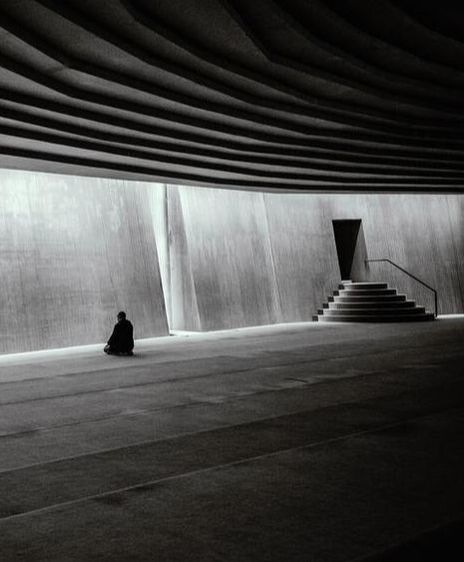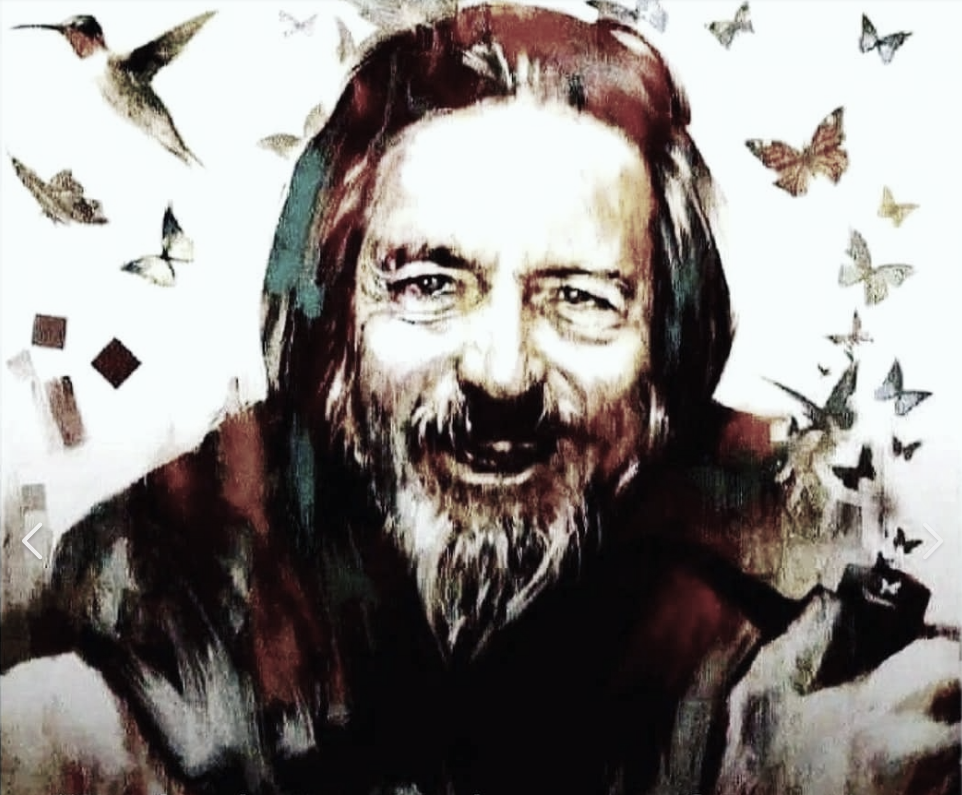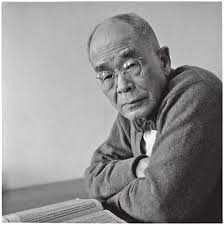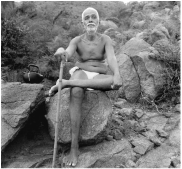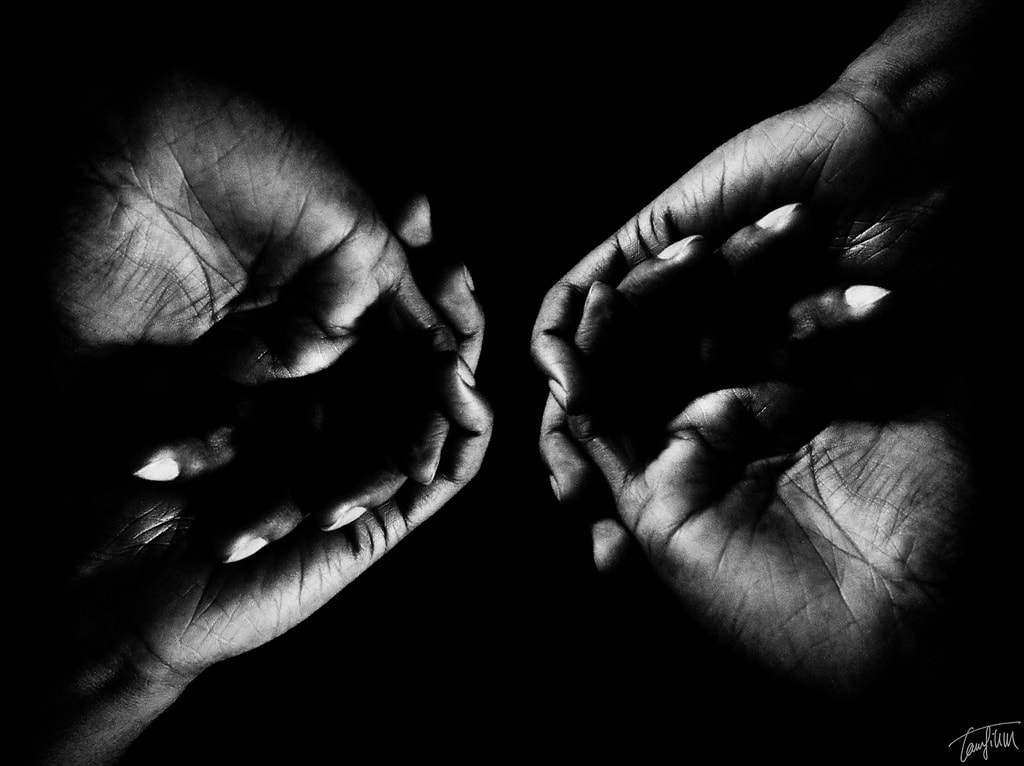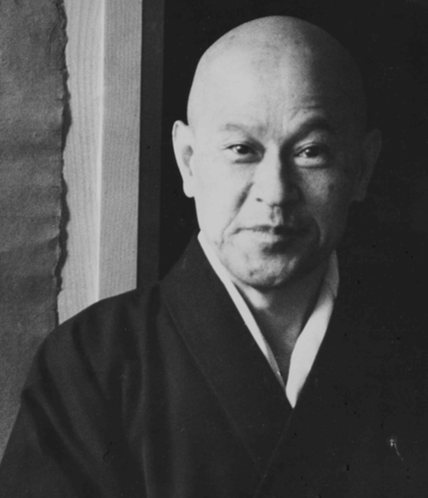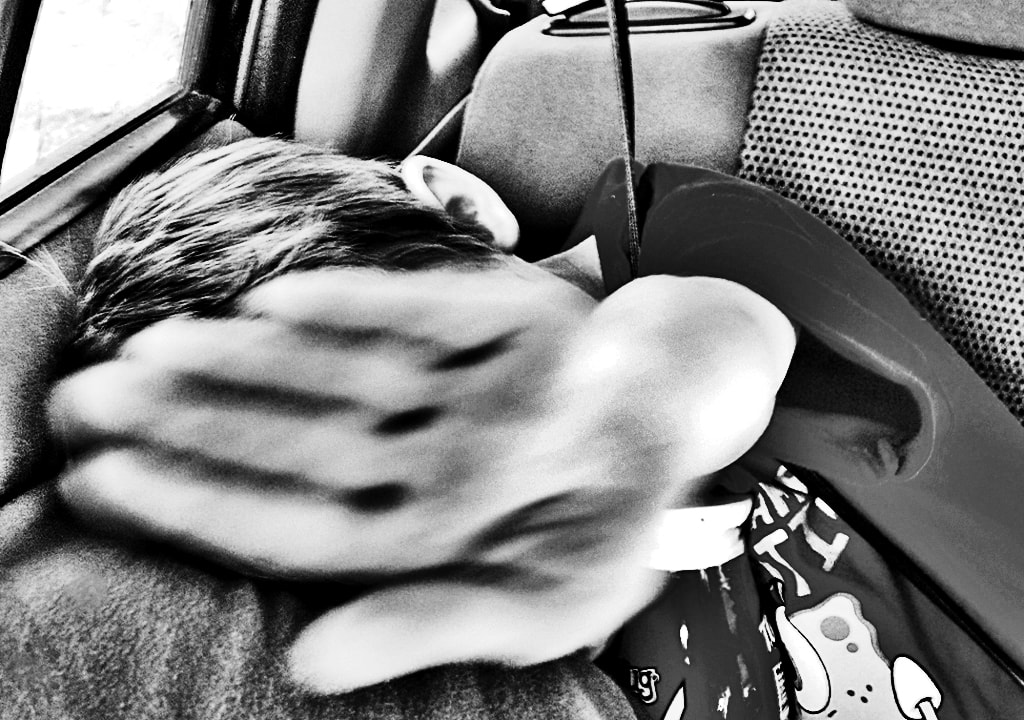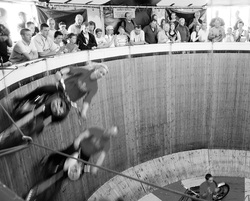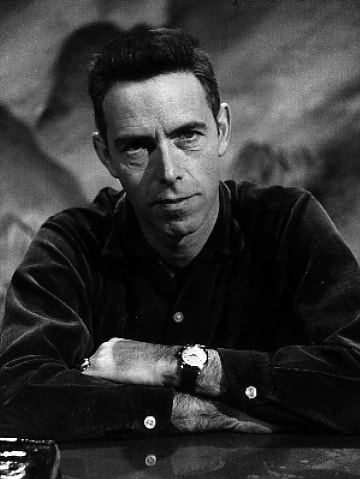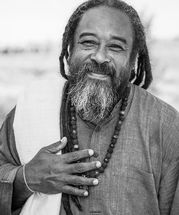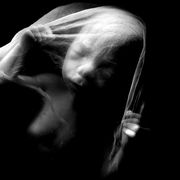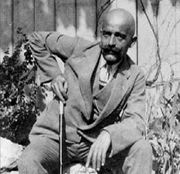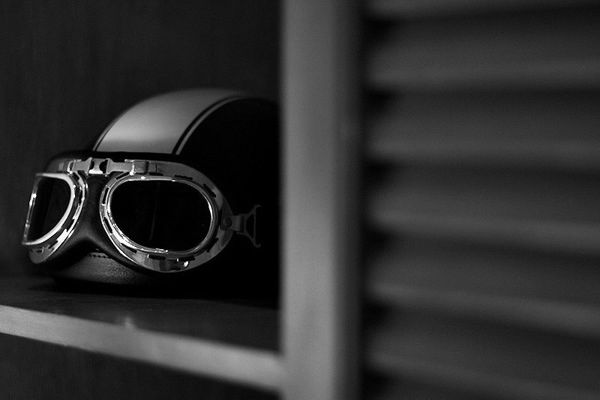The theory suggests there is a change point at the level of courage. Below the level of courage are states of consciousness that lead to suffering. At the level of courage, we have the courage to look at ourselves and recognize that we are at the source of our own suffering and we also have the potential to be at the source of creating our own joy and peace.
Source: Tree of Life Foundation
The Real You by Alan Watts If you’re ready to wake up, you’re going to wake up and if you’re not ready,
you’re going to stay pretending that you're just “poor little me”. Innate (Wu Wei 无为) Qigong - 16 Taoist Healthy and Longevity Exercises, part 1
Innate (Wu Wei 无为) Qigong - 16 Health and Longevity Movements performed by Wang Jianjun who is president of Hanlin Academy, president of the European Qi gong Association and founder of Natural Qigong (wu wei qigong) style of qi gong. Member of the Chinese Scientific Institute for Human Research, the Chinese Human Body Scientific Research Society, the Beijing Qigong Scientific Research Association
APPOINTMENT WITH DEATH (Marananussati)
What state of mind do you want to be in at the moment of your death. It could be fifty years
away. It could be today. The exact time cannot be predicted, but we can choose our state of mind while we live. Ajahn Nyanamoli Thero from the Hillside Hermitage explains:
Are there days when all of your electronic devices go haywire?
Maybe it's your energy field. There is nothing to be done, but watch, listen and love. Beyond that, the best we can do is float and try our best to enjoy the ride.
Everything is happening at once, but the human The Yoga Sutras of Patanjali The Threads of Union Translation by BonGiovanni 1. on Contemplations 2. on Spiritual Disciplines 3. on Divine Powers 4. on Realizations Before beginning any spiritual text it is customary to clear the mind of all distracting thoughts, to calm the breath and to purify the heart. 1.1 Now, instruction in Union. 1.2. Union is restraining the thought-streams natural to the mind. 1.3. Then the seer dwells in his own nature. 1.4. Otherwise he is of the same form as the thought-streams. 1.5. The thought-streams are five-fold, painful and not painful. 1.6. Right knowledge, wrong knowledge, fancy, sleep and memory. 1.7. Right knowledge is inference, tradition and genuine cognition. 1.8. Wrong knowledge is false, illusory, erroneous beliefs or notions. 1.9. Fancy is following after word-knowledge empty of substance. 1.10. Deep sleep is the modification of the mind which has for its substratum nothingness. 1.11. Memory is not allowing mental impressions to escape. 1.12. These thought-streams are controlled by practice and non-attachment. 1.13. Practice is the effort to secure steadiness. 1.14. This practice becomes well-grounded when continued with reverent devotion and without interruption over a long period of time. 1.15. Desirelessness towards the seen and the unseen gives the consciousness of mastery. 1.16. This is signified by an indifference to the three attributes, due to knowledge of the Indweller. 1.17. Cognitive meditation is accompanied by reasoning, discrimination, bliss and the sense of 'I am.' 1.18. There is another meditation which is attained by the practice of alert mental suspension until only subtle impressions remain. 1.19. For those beings who are formless and for those beings who are merged in unitive consciousness, the world is the cause. 1.20. For others, clarity is preceded by faith, energy, memory and equalminded contemplation. 1.21. Equalminded contemplation is nearest to those whose desire is most ardent. 1.22. There is further distinction on account of the mild, moderate or intense means employed. 1.23. Or by surrender to God. 1.24. God is a particular yet universal indweller, untouched by afflictions, actions, impressions and their results. 1.25. In God, the seed of omniscience is unsurpassed. 1.26. Not being conditioned by time, God is the teacher of even the ancients. 1.27. God's voice is Om. 1.28. The repetition of Om should be made with an understanding of its meaning. 1.29. From that is gained introspection and also the disappearance of obstacles. 1.30. Disease, inertia, doubt, lack of enthusiasm, laziness, sensuality, mind-wandering, missing the point, instability- these distractions of the mind are the obstacles. 1.31. Pain, despair, nervousness, and disordered inspiration and expiration are co-existent with these obstacles. 1.32. For the prevention of the obstacles, one truth should be practiced constantly. 1.33. By cultivating friendliness towards happiness and compassion towards misery, gladness towards virtue and indifference towards vice, the mind becomes pure. 1.34. Optionally, mental equanimity may be gained by the even expulsion and retention of energy. 1.35. Or activity of the higher senses causes mental steadiness. 1.36. Or the state of sorrowless Light. 1.37. Or the mind taking as an object of concentration those who are freed of compulsion. 1.38. Or depending on the knowledge of dreams and sleep. 1.39. Or by meditation as desired. 1.40. The mastery of one in Union extends from the finest atomic particle to the greatest infinity. 1.41. When the agitations of the mind are under control, the mind becomes like a transparent crystal and has the power of becoming whatever form is presented. knower, act of knowing, or what is known. 1.42. The argumentative condition is the confused mixing of the word, its right meaning, and knowledge. 1.43. When the memory is purified and the mind shines forth as the object alone, it is called non-argumentative. 1.44. In this way the meditative and the ultra-meditative having the subtle for their objects are also described. 1.45. The province of the subtle terminates with pure matter that has no pattern or distinguishing mark. 1.46. These constitute seeded contemplations. 1.47. On attaining the purity of the ultra-meditative state there is the pure flow of spiritual consciousness. 1.48. Therein is the faculty of supreme wisdom. 1.49. The wisdom obtained in the higher states of consciousness is different from that obtained by inference and testimony as it refers to particulars. 1.50. The habitual pattern of thought stands in the way of other impressions. 1.51. With the suppression of even that through the suspension of all modifications of the mind, contemplation without seed is attained. End Part One. Part Two on Spiritual Disciplines 2.1 Austerity, the study of sacred texts, and the dedication of action to God constitute the discipline of Mystic Union. 2.2 This discipline is practised for the purpose of acquiring fixity of mind on the Lord, free from all impurities and agitations, or on One's Own Reality, and for attenuating the afflictions. 2.3 The five afflictions are ignorance, egoism, attachment, aversion, and the desire to cling to life. 2.4 Ignorance is the breeding place for all the others whether they are dormant or attenuated, partially overcome or fully operative. 2.5 Ignorance is taking the non-eternal for the eternal, the impure for the pure, evil for good and non-self as self. 2.6 Egoism is the identification of the power that knows with the instruments of knowing. 2.7 Attachment is that magnetic pattern which clusters in pleasure and pulls one towards such experience. 2.8 Aversion is the magnetic pattern which clusters in misery and pushes one from such experience. 2.9 Flowing by its own energy, established even in the wise and in the foolish, is the unending desire for life. 2.10 These patterns when subtle may be removed by developing their contraries. 2.11 Their active afflictions are to be destroyed by meditation. 2.12 The impressions of works have their roots in afflictions and arise as experience in the present and the future births. 2.13 When the root exists, its fruition is birth, life and experience. 2.14 They have pleasure or pain as their fruit, according as their cause be virtue or vice. 2.15 All is misery to the wise because of the pains of change, anxiety, and purificatory acts. 2.16 The grief which has not yet come may be avoided. 2.17 The cause of the avoidable is the superimposition of the external world onto the unseen world. 2.18 The experienced world consists of the elements and the senses in play. It is of the nature of cognition, activity and rest, and is for the purpose of experience and realization. 2.19 The stages of the attributes effecting the experienced world are the specialized and the unspecialized, the differentiated and the undifferentiated. 2.20 The indweller is pure consciousness only, which though pure, sees through the mind and is identified by ego as being only the mind. 2.21 The very existence of the seen is for the sake of the seer. 2.22 Although Creation is discerned as not real for the one who has achieved the goal, it is yet real in that Creation remains the common experience to others. 2.23 The association of the seer with Creation is for the distinct recognition of the objective world, as well as for the recognition of the distinct nature of the seer. 2.24 The cause of the association is ignorance. 2.25 Liberation of the seer is the result of the dissassociation of the seer and the seen, with the disappearance of ignorance. 2.26 The continuous practice of discrimination is the means of attaining liberation. 2.27 Steady wisdom manifests in seven stages. 2.28 On the destruction of impurity by the sustained practice of the limbs of Union, the light of knowledge reveals the faculty of discrimination. 2.29 The eight limbs of Union are self-restraint in actions, fixed observance, posture, regulation of energy, mind-control in sense engagements, concentration, meditation, and realization. 2.30 Self-restraint in actions includes abstention from violence, from falsehoods, from stealing, from sexual engagements, and from acceptance of gifts. 2.31 These five willing abstentions are not limited by rank, place, time or circumstance and constitute the Great Vow. 2.32 The fixed observances are cleanliness, contentment, austerity, study and persevering devotion to God. 2.33 When improper thoughts disturb the mind, there should be constant pondering over the opposites. 2.34 Improper thoughts and emotions such as those of violence- whether done, caused to be done, or even approved of- indeed, any thought originating in desire, anger or delusion, whether mild medium or intense- do all result in endless pain and misery. Overcome such distractions by pondering on the opposites. 2.35 When one is confirmed in non-violence, hostility ceases in his presence. 2.36 When one is firmly established in speaking truth, the fruits of action become subservient to him. 2.37 All jewels approach him who is confirmed in honesty. 2.38 When one is confirmed in celibacy, spiritual vigor is gained. 2.39 When one is confirmed in non-possessiveness, the knowledge of the why and how of existence is attained. 2.40 From purity follows a withdrawal from enchantment over one's own body as well as a cessation of desire for physical contact with others. 2.41 As a result of contentment there is purity of mind, one-pointedness, control of the senses, and fitness for the vision of the self. 2.42 Supreme happiness is gained via contentment. 2.43 Through sanctification and the removal of impurities, there arise special powers in the body and senses. 2.44 By study comes communion with the Lord in the Form most admired. 2.45 Realization is experienced by making the Lord the motive of all actions. 2.46 The posture should be steady and comfortable. 2.47 In effortless relaxation, dwell mentally on the Endless with utter attention. 2.48 From that there is no disturbance from the dualities. 2.49 When that exists, control of incoming and outgoing energies is next. 2.50 It may be external, internal, or midway, regulated by time, place, or number, and of brief or long duration. 2.51 Energy-control which goes beyond the sphere of external and internal is the fourth level- the vital. 2.52 In this way, that which covers the light is destroyed. 2.53 Thus the mind becomes fit for concentration. 2.54 When the mind maintains awareness, yet does not mingle with the senses, nor the senses with sense impressions, then self-awareness blossoms. 2.55 In this way comes mastery over the senses. End Part Two Part Three on Divine Powers3.1 One-pointedness is steadfastness of the mind. 3.2 Unbroken continuation of that mental ability is meditation. 3.3 That same meditation when there is only consciousness of the object of meditation and not of the mind is realization. 3.4 The three appearing together are self-control. 3.5 By mastery comes wisdom. 3.6 The application of mastery is by stages. 3.7 The three are more efficacious than the restraints. 3.8 Even that is external to the seedless realization. 3.9 The significant aspect is the union of the mind with the moment of absorption, when the outgoing thought disappears and the absorptive experience appears. 3.10 From sublimation of this union comes the peaceful flow of unbroken unitive cognition. 3.11 The contemplative transformation of this is equalmindedness, witnessing the rise and destruction of distraction as well as one-pointedness itself. 3.12 The mind becomes one-pointed when the subsiding and rising thought-waves are exactly similar. 3.13 In this state, it passes beyond the changes of inherent characteristics, properties and the conditional modifications of object or sensory recognition. 3.14 The object is that which preserves the latent characteristic, the rising characteristic or the yet-to-be-named characteristic that establishes one entity as specific. 3.15 The succession of these changes in that entity is the cause of its modification. 3.16 By self-control over these three-fold changes (of property, character and condition), knowledge of the past and the future arises. 3.17 The sound of a word, the idea behind the word, and the object the idea signfies are often taken as being one thing and may be mistaken for one another. By self-control over their distinctions, understanding of all languages of all creatures arises. 3.18 By self-control on the perception of mental impressions, knowledge of previous lives arises. 3.19 By self-control on any mark of a body, the wisdom of the mind activating that body arises. 3.20 By self-control on the form of a body, by suspending perceptibility and separating effulgence therefrom, there arises invisibility and inaudibilty. 3.21 Action is of two kinds, dormant and fruitful. By self-control on such action, one portends the time of death. 3.22 By performing self-control on friendliness, the strength to grant joy arises. 3.23 By self-control over any kind of strength, such as that of the elephant, that very strength arises. 3.24 By self-control on the primal activator comes knowledge of the hidden, the subtle, and the distant. 3.25 By self-control on the Sun comes knowledge of spatial specificities. 3.26 By self-control on the Moon comes knowledge of the heavens. 3.27 By self-control on the Polestar arises knowledge of orbits. 3.28 By self-control on the navel arises knowledge of the constitution of the body. 3.29 By self-control on the pit of the throat one subdues hunger and thirst. 3.30 By self-control on the tube within the chest one acquires absolute steadiness. 3.31 By self-control on the light in the head one envisions perfected beings. 3.32 There is knowledge of everything from intuition. 3.33 Self-control on the heart brings knowledge of the mental entity. 3.34 Experience arises due to the inability of discerning the attributes of vitality from the indweller, even though they are indeed distinct from one another. Self-control brings true knowledge of the indweller by itself. 3.35 This spontaneous enlightenment results in intuitional perception of hearing, touching, seeing and smelling. 3.36 To the outward turned mind, the sensory organs are perfections, but are obstacles to realization. 3.37 When the bonds of the mind caused by action have been loosened, one may enter the body of another by knowledge of how the nerve-currents function. 3.38 By self-control of the nerve-currents utilising the lifebreath, one may levitate, walk on water, swamps, thorns, or the like. 3.39 By self-control over the maintenance of breath, one may radiate light. 3.40 By self-control on the relation of the ear to the ether one gains distant hearing. 3.41 By self-control over the relation of the body to the ether, and maintaining at the same time the thought of the lightness of cotton, one is able to pass through space. 3.42 By self-control on the mind when it is separated from the body- the state known as the Great Transcorporeal- all coverings are removed from the Light. 3.43 Mastery over the elements arises when their gross and subtle forms,as well as their essential characteristics, and the inherent attributes and experiences they produce, is examined in self-control. 3.44 Thereby one may become as tiny as an atom as well as having many other abilities, such as perfection of the body, and non-resistence to duty. 3.45 Perfection of the body consists in beauty, grace, strength and adamantine hardness. 3.46 By self-control on the changes that the sense-organs endure when contacting objects, and on the power of the sense of identity, and of the influence of the attributes, and the experience all these produce- one masters the senses. 3.47 From that come swiftness of mind, independence of perception, and mastery over primoridal matter. 3.48 To one who recognizes the distinctive relation between vitality and indweller comes omnipotence and omniscience. 3.49 Even for the destruction of the seed of bondage by desirelessness there comes absolute independence. 3.50 When invited by invisible beings one should be neither flattered nor satisfied, for there is yet a possibility of ignorance rising up. 3.51 By self-control over single moments and their succession there is wisdom born of discrimination. 3.52 From that there is recognition of two similars when that difference cannot be distinguished by class, characteristic or position. 3.53 Intuition, which is the entire discriminative knowledge, relates to all objects at all times, and is without succession. 3.54 Liberation is attained when there is equal purity between vitality and the indweller. End Part Three Part Four on Realizations 4.1 Psychic powers arise by birth, drugs, incantations, purificatory acts or concentrated insight. 4.2 Transformation into another state is by the directed flow of creative nature. 4.3 Creative nature is not moved into action by any incidental cause, but by the removal of obstacles, as in the case of a farmer clearing his field of stones for irrigation. 4.4 Created minds arise from egoism alone. 4.5 There being difference of interest, one mind is the director of many minds. 4.6 Of these, the mind born of concentrated insight is free from the impressions. 4.7 The impressions of unitive cognition are neither good nor bad. In the case of the others, there are three kinds of impressions. 4.8 From them proceed the development of the tendencies which bring about the fruition of actions. 4.9 Because of the magnetic qualities of habitual mental patterns and memory, a relationship of cause and effect clings even though there may be a change of embodiment by class, space and time. 4.10 The desire to live is eternal, and the thought-clusters prompting a sense of identity are beginningless. 4.11 Being held together by cause and effect, substratum and object- the tendencies themselves disappear on the dissolution of these bases. 4.12 The past and the future exist in the object itself as form and expression, there being difference in the conditions of the properties. 4.13 Whether manifested or unmanifested they are of the nature of the attributes. 4.14 Things assume reality because of the unity maintained within that modification. 4.15 Even though the external object is the same, there is a difference of cognition in regard to the object because of the difference in mentality. 4.16 And if an object known only to a single mind were not cognized by that mind, would it then exist? 4.17 An object is known or not known by the mind, depending on whether or not the mind is colored by the object. 4.18 The mutations of awareness are always known on account of the changelessness of its Lord, the indweller. 4.19 Nor is the mind self-luminous, as it can be known. 4.20 It is not possible for the mind to be both the perceived and the perceiver simultaneously. 4.21 In the case of cognition of one mind by another, we would have to assume cognition of cognition, and there would be confusion of memories. 4.22 Consciousness appears to the mind itself as intellect when in that form in which it does not pass from place to place. 4.23 The mind is said to perceive when it reflects both the indweller (the knower) and the objects of perception (the known). 4.24 Though variegated by innumerable tendencies, the mind acts not for itself but for another, for the mind is of compound substance. 4.25 For one who sees the distinction, there is no further confusing of the mind with the self. 4.26 Then the awareness begins to discriminate, and gravitates towards liberation. 4.27 Distractions arise from habitual thought patterns when practice is intermittent. 4.28 The removal of the habitual thought patterns is similar to that of the afflictions already described. 4.29 To one who remains undistracted in even the highest intellection there comes the equalminded realization known as The Cloud of Virtue. This is a result of discriminative discernment. 4.30 From this there follows freedom from cause and effect and afflictions. 4.31 The infinity of knowledge available to such a mind freed of all obscuration and property makes the universe of sensory perception seem small. 4.32 Then the sequence of change in the three attributes comes to an end, for they have fulfilled their function. 4.33 The sequence of mutation occurs in every second, yet is comprehensible only at the end of a series. 4.34 When the attributes cease mutative association with awarenessness, they resolve into dormancy in Nature, and the indweller shines forth as pure consciousness. This is absolute freedom. The end of the Yoga Sutras of Patanjali The Subconscious Source of All ExperienceA worthy, quick read by Barbara O'Brien at THOUGHT.CO  "The source of our perception, our way of seeing, lies in our store consciousness. If ten people look at a cloud, there will be ten different perceptions of it. Whether it is perceived as a dog, a hammer, or a coat depends on our mind—our sadness, our memories, our anger. Our perceptions carry with them all the errors of subjectivity." - Thich Nhat Hanh
This Drawing is 73,000 Years OldMore of what we don't know about what we don't know yet. |
from and for Michael Dickes
Categories
All
Archives
October 2019
|
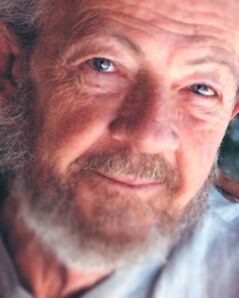
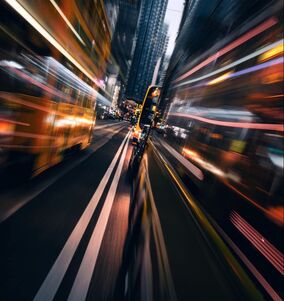
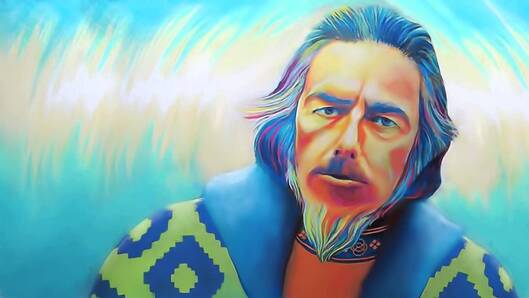

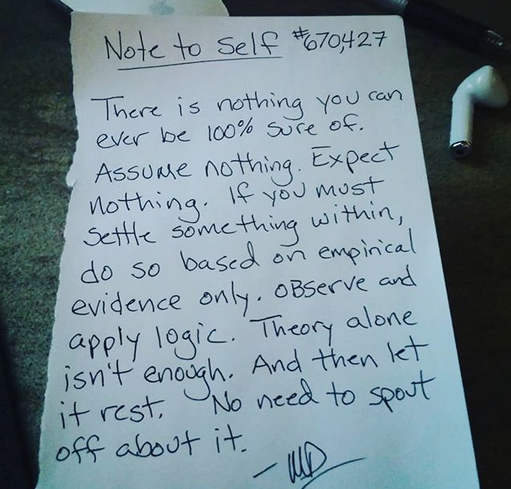
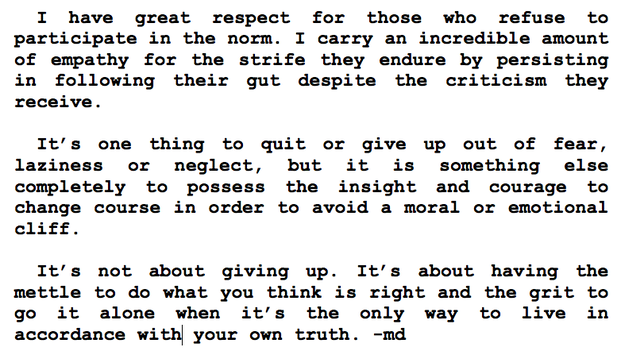
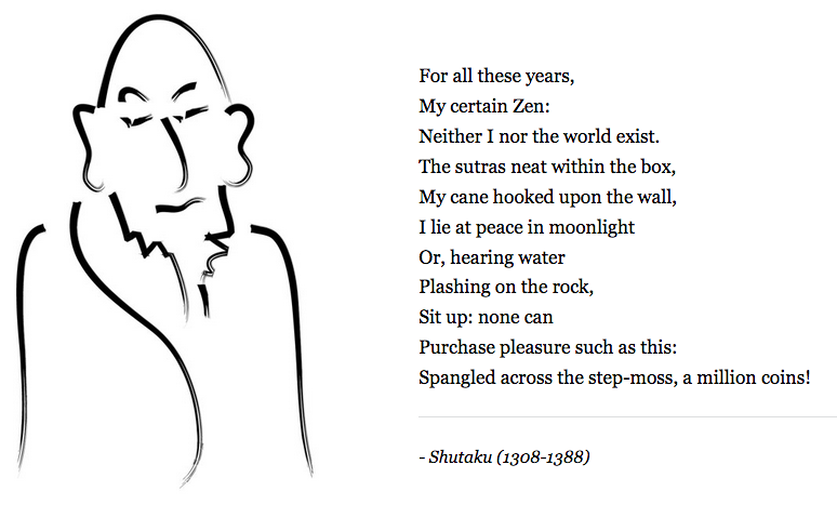
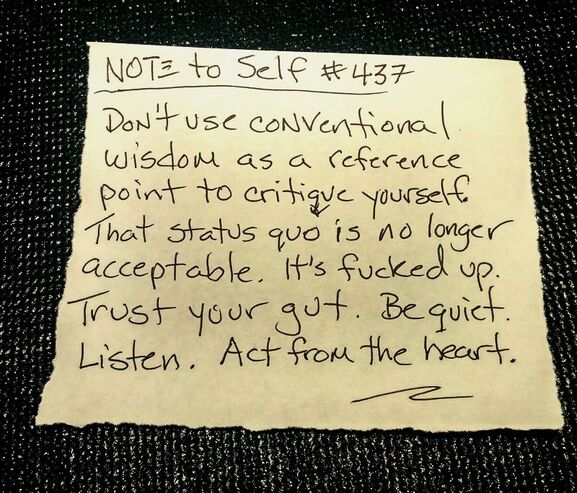
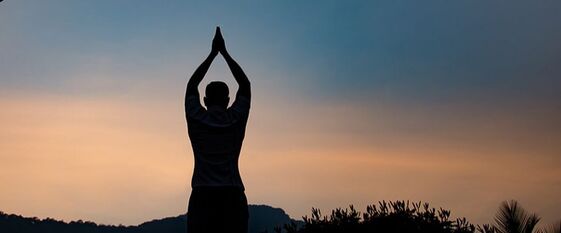
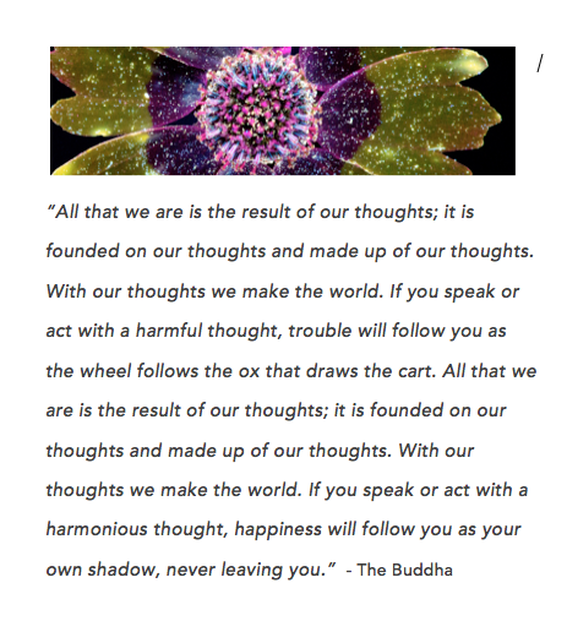
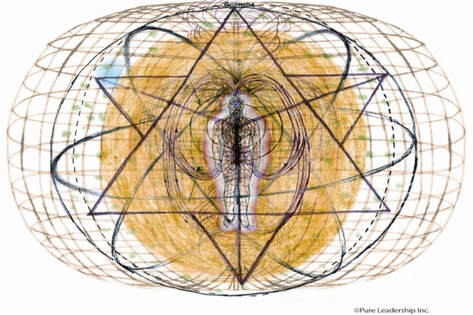
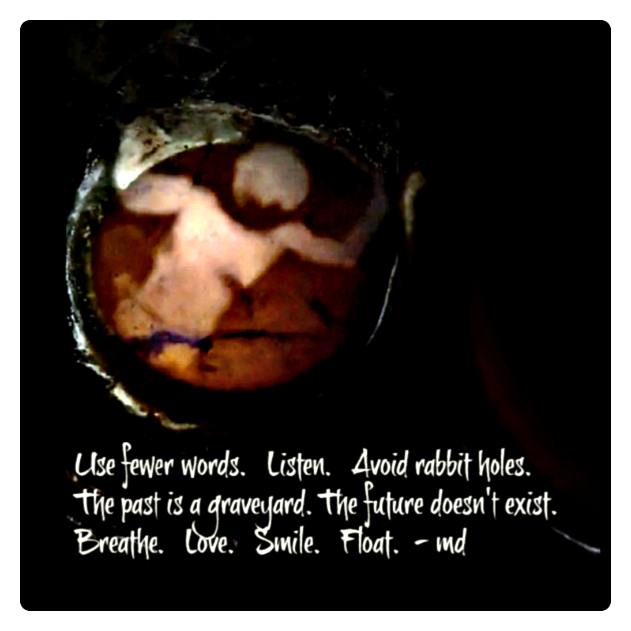
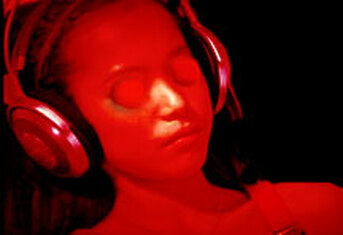
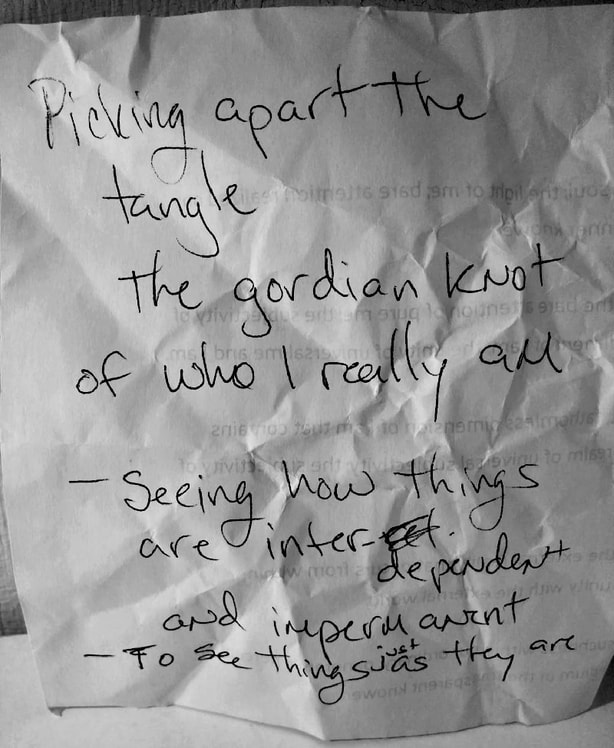
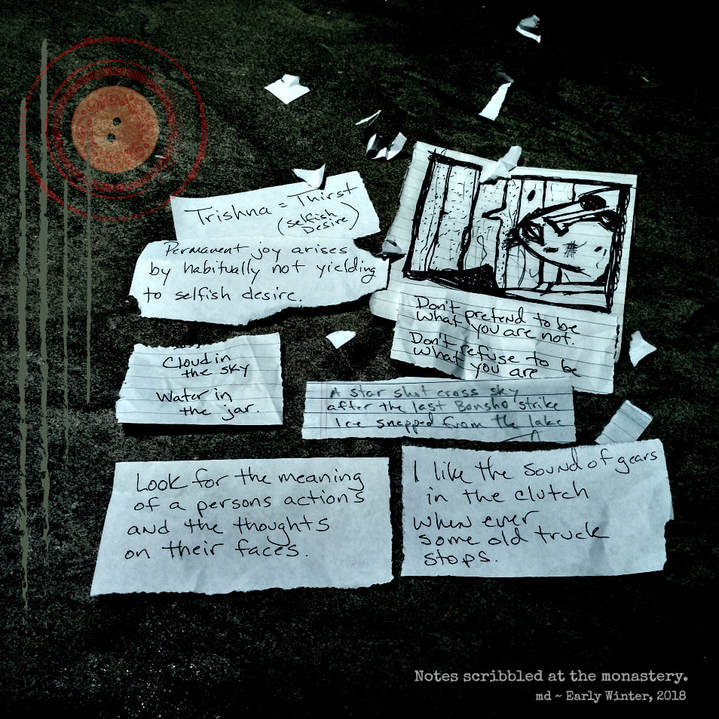
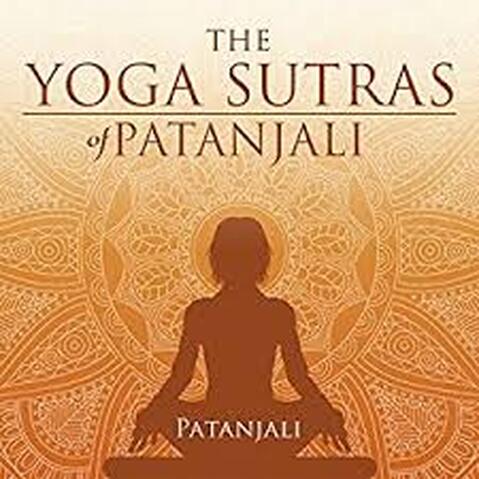

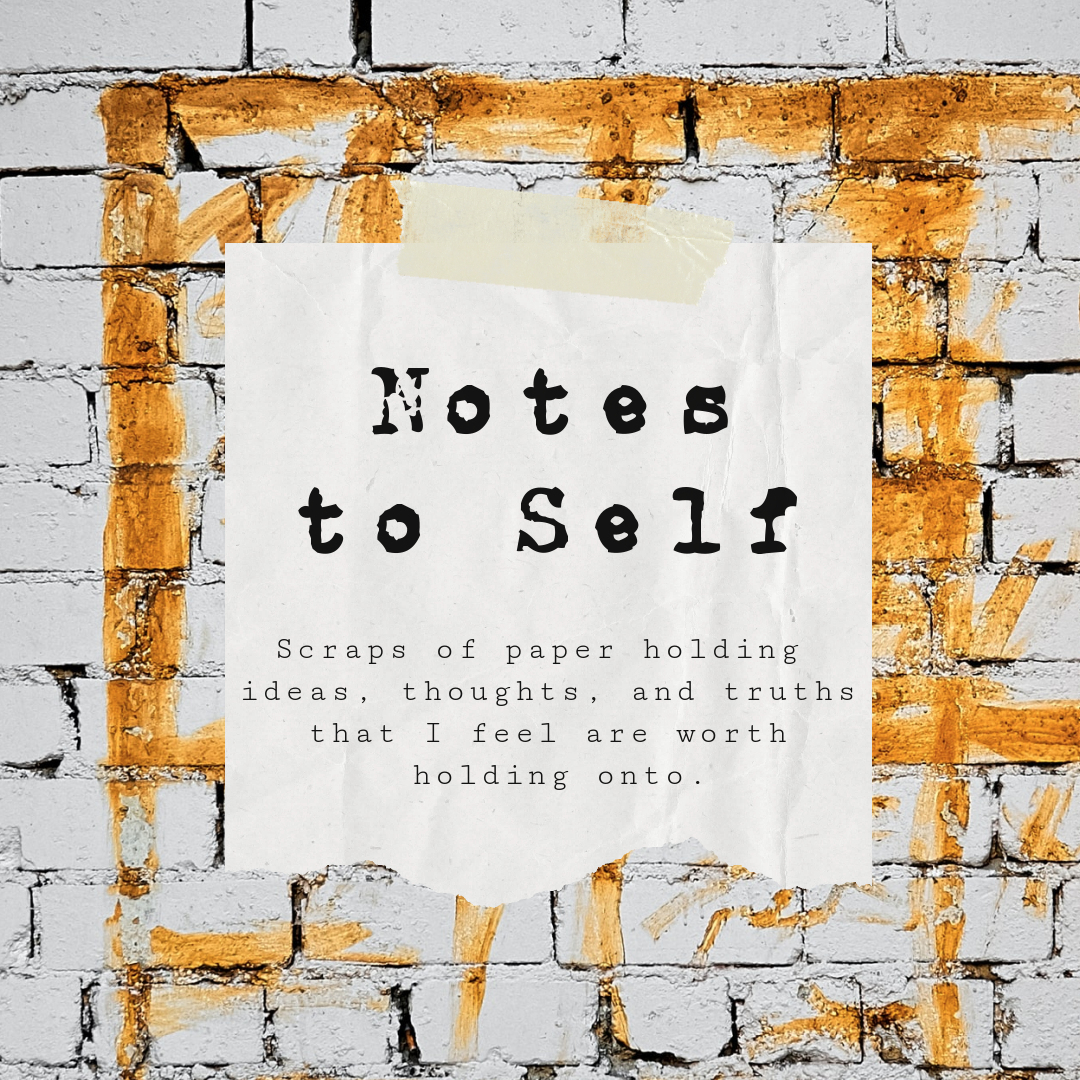
 RSS Feed
RSS Feed
